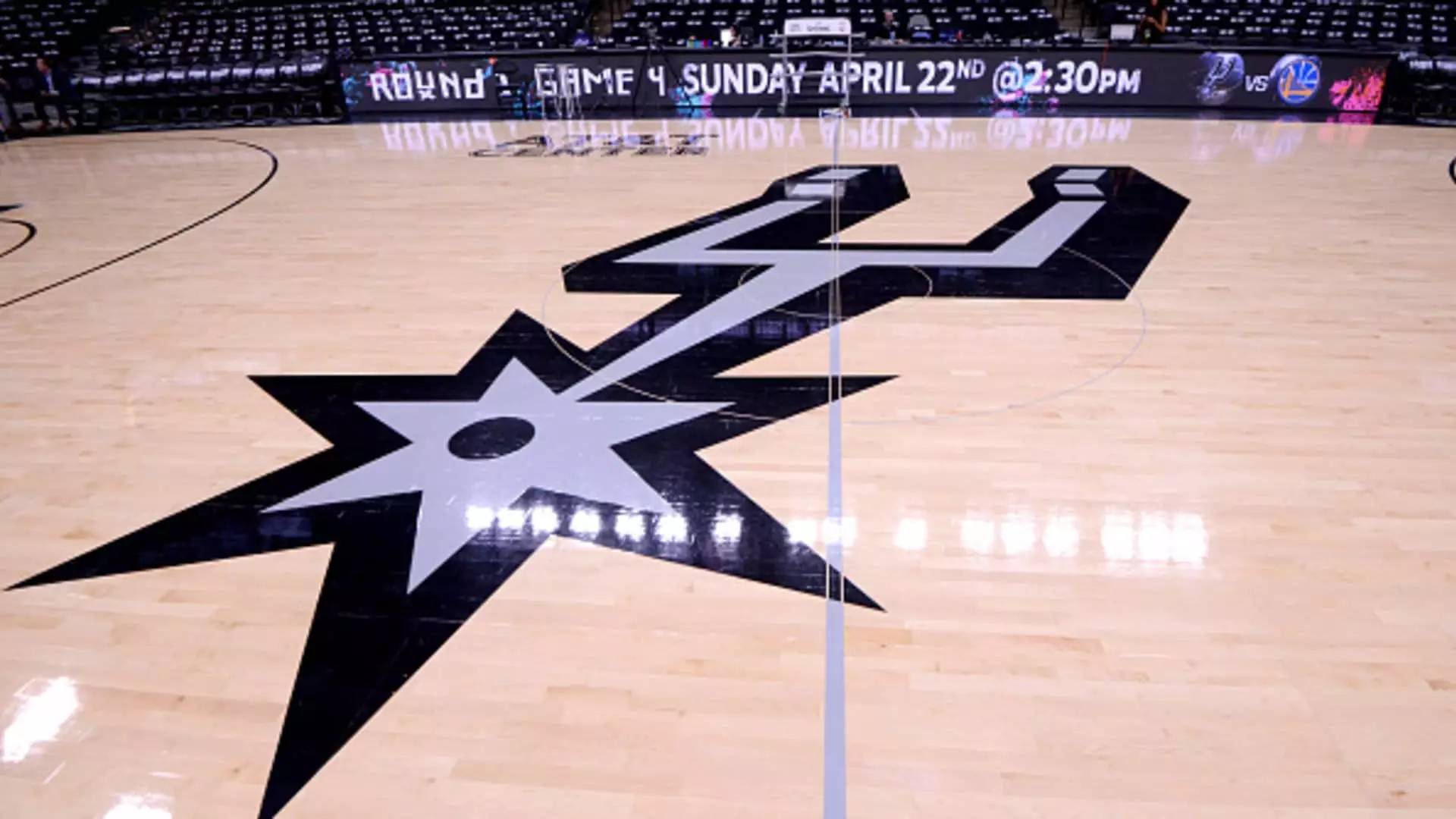Investor confidence in NBA teams has surged, reflecting a growing trend where franchises are seen as lucrative assets. This is exemplified by businessman Paul Viera, who recently escalated his ownership stake in the San Antonio Spurs from 5% to 11%. As owner of Earnest Partners, a renowned investment firm based in Atlanta, Viera’s moves are part of a broader narrative of increasing valuations within the league, influenced heavily by new media deals aimed at elevating the sports market’s profitability.
Viera’s recent acquisition involved purchasing food service giant Aramark’s remaining interest in the Spurs. This transaction, negotiated at a notable discount, came in the backdrop of the team’s valuation now positioned at a staggering $2.5 billion. Such valuations highlight the complexities and strategic implications of NBA ownership, particularly for minority stakeholders. Viera’s journey into the Spurs’ ownership began in May of the previous year when he acquired his initial 5% stake, a move that was also shrouded in anonymity as terms of the deal were undisclosed.
Aramark’s 2023 annual report reveals the financial intricacies surrounding its stake in the Spurs. The company sold a segment of its ownership for $98.2 million, enduring a pretax loss of $1.1 million, thus underscoring the financial volatility that can accompany sports franchise investments. Viera’s stepping in to boost his share amidst these financial fluctuations suggests a calculated risk, one that may signal his belief in the Spurs’ revitalization potential.
Ownership Landscape and its Influences
Peter Holt remains the majority owner of the Spurs, drawing attention to the group’s long-standing ties to the franchise which dates back to their acquisition in 1996. Viera’s new stake adds to a diverse cast of owners, including prominent figures such as Michael Dell and two-time NBA champion David Robinson, who offer varied experiences and perspectives that could drive the team in new directions.
The NBA landscape is evolving, particularly in terms of ownership diversity. This is epitomized by the increasing number of players-turned-owners now part of the league. Figures like Grant Hill and Dwyane Wade reflect a shift towards inclusivity, which the NBA actively promotes. Such diversity is crucial, as it provides multiple viewpoints on how to navigate the evolving landscape of professional basketball, both on and off the court.
Financial Trends Shaping Team Valuations
The surge in team valuations is not only a result of on-court performance but is also deeply connected to the NBA’s ambitious 11-year, $76 billion media rights agreement. Recent high-profile transactions, like Junior Bridgeman’s acquisition of a stake in the Milwaukee Bucks for an enterprise value of $3.4 billion, illustrate the growing appetite for investment in NBA franchises. This shift suggests that teams, irrespective of their current success or failure, can be seen as valuable financial assets.
Although the Spurs have not had significant on-court success recently, finishing their last season at 22-60, the emergence of rookie sensation Victor Wembanyama offers a promising horizon. His potential to change the team’s dynamics both athletically and financially paints a favorable picture. Investors, including Viera, seem to be betting on such future potential, signaling confidence in the Spurs’ rebuilding period.
As Viera’s investment strategy indicates, the NBA is at a transformative juncture. With reports of upcoming ownership changes, particularly concerning teams like the Boston Celtics, the market can expect shifts in control coupled with rising valuations. The Celtics, co-owned by Wyc Grousbeck, are rumored to be listed for between $5.5 billion and $6 billion—a stark contrast to their $360 million purchase price in 2002.
This evolving ownership framework not only reveals a thriving sports market but also illustrates the critical relationship between team ownership, financial success, and broader cultural dynamics. As more diverse owners enter the league, their influence may reshape the strategic vision for teams, leading to new growth avenues and engagement strategies in the future.
Paul Viera’s increased stake in the Spurs symbolizes more than just an investment; it signifies a belief in the potential success of a storied franchise amid fluctuating fortunes. As the NBA landscape continues to evolve with new ownership dynamics, emerging players, and lucrative media deals, the narrative of team ownership is set to wield substantial implications for the future of professional basketball.

